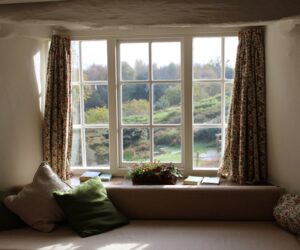
Getting enough sleep is a critical requirement of living healthy and happy. Adequate sleep leads to better concentration and productivity, greater athletic performance, more emotional and social intelligence, and a stronger immune system. It can even lower your risk of stress and depression. And one part of the house that plays a crucial role in your sleep is no other than your bedroom.
An ideal bedroom should offer the tranquility and comfort you need to have a good night’s sleep. It’s the space in your home where you should feel utmost calmness, relaxation, and peace. Your bedroom’s design impacts how you fall asleep, wake up, or rest. If your bedroom is nothing anywhere near all that, then it’s time for some revamping. Here are a few suggestions to help you create the perfect sleep sanctuary.
1. Limit the light in the room
A person’s internal alarm clock is controlled by the Suprachiasmatic Nucleus, which uses the light signals your optic nerves receive. With that in mind, any detected light can initiate wakefulness. It keeps the body temperature on high as the light signals prevent the release of melatonin and produce cortisol instead. Your sleep-wake cycle can be significantly affected by exposure to electrical light.
For such reasons, experts recommend limiting light exposure to have a restorative and deep sleep. The darker the room, the better. You can inst4ead use under-bed lights or motion-activated night lights if you’re worried about finding walking to the bathroom.
In case you sleep past sunrise or your bedroom windows let too much light pass through, you can install blackout shades to keep it dark. Or you can use a sleep mask. Buy one with breathable fabric and comfy yet fitted to wear.
2. Consider symmetry and harmony
Incorporating balance can help your bedroom become more sleep-friendly. Many people also prefer to make their bed the focal point. If you’re using an elevated bed, its height should be proportional to yours. This will make you feel grounded (not too high or low) when you’re sleeping.
The size of your bedroom, particularly the ceiling height, should also be. If you have a small bedroom, opt for a lower profile. You can get one with a taller frame if you have a high ceiling. The height of the bed can also impact how comfortable you sleep and wake up. Ideally, when sitting on the mattress, your feet must be flat on the floor, and your knees and hips are aligned.
Other ways to add a focal point are by creating a lounging space, a reading or writing nook, and a window seat and using nightstands at the room’s ends.
3. Maintain heating and cooling system
A bedroom with a comfortable temperature can make sleeping easier and better for you. But to do that, you need to ensure your heating and cooling system is functioning well. If your system has issues like air leaks, unhealthy air can enter your space, and maintaining your desired temperature level would be hard.
Prevent this by scheduling HVAC maintenance or air conditioning repair services regularly. Opt for local experts with great experience and affordable service rates.
Besides repairs, they can also recommend a new system that requires less maintenance if you plan to replace your old one. Older models may take more time to warm or cool your bedroom since they use old ducts. Buying a new heating and cooling system can reach your desired temperature faster and improve the air quality in your room, helping you sleep more comfortably.
4. Pick the best sound solutions
Noise is a top distraction when it comes to sleeping. If you’re living with a family member or a friend, noises from car door slams and theater-like movie marathons are pretty normal. However, these make sleep even more challenging and can even lead to a rough tomorrow.
To prevent an evening of frustration, find waits to control the noises. If you’re living with some, request if they can turn down the noise when making phone calls, playing computer games, or watching TV. As for noises you cannot control, like your neighbor’s dog barking, you can use sound solutions such as sleep headphones or earplugs.
You can also consider using a white noise machine or positioning your bed away from street-facing windows or shared walls to better reduce the distracting noises. If you’re living alone, always turn off outdoor sounds like your TV before sleeping. You can make your bedroom more conducive to a good night’s sleep by not placing any display, speakers, or anything that generates sounds.
Your bedroom should be a special place where you can rest away from your daily stressors and a haven for you to get enough sleep. Design your bedroom using our tips or however you desire. But regardless of the colors or stuff you incorporate in your space, ensure it positively influences your sleep.




